Filter by
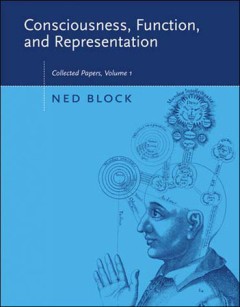
Consciousness, Function, and Representation, Volume 1: Collected Papers
"A Bradford book."AnnotationOCLC-licensed vendor bibliographic record.
- Edition
- -
- ISBN/ISSN
- 9780262268776
- Collation
- 1 online resource (vi, 636 pages) :illustrations.
- Series Title
- -
- Call Number
- -
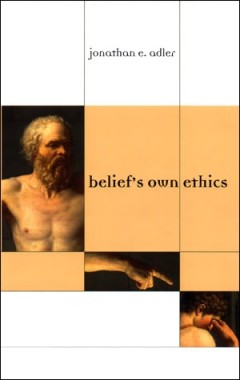
Belief's own ethics
"A Bradford book."The fundamental question of the ethics of belief is "What ought one to believe?" According to the traditional view of evidentialism, the strength of one's beliefs should be proportionate to the evidence. Conventional ways of defending and challenging evidentialism rely on the idea that what one ought to believe is a matter of what it is rational, prudent, ethical, or personall…
- Edition
- -
- ISBN/ISSN
- 9780262266826
- Collation
- 1 online resource (xv, 357 pages)
- Series Title
- -
- Call Number
- -
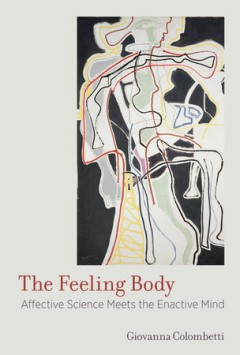
The Feeling Body: Affective Science Meets the Enactive Mind
In The Feeling Body, Giovanna Colombetti takes ideas from the enactive approach developed over the last twenty years in cognitive science and philosophy of mind and applies them for the first time to affective science -- the study of emotions, moods, and feelings. She argues that enactivism entails a view of cognition as not just embodied but also intrinsically affective, and she elaborates on …
- Edition
- -
- ISBN/ISSN
- 9780262318419
- Collation
- 1 online resource (xviii, 270 pages)
- Series Title
- -
- Call Number
- -
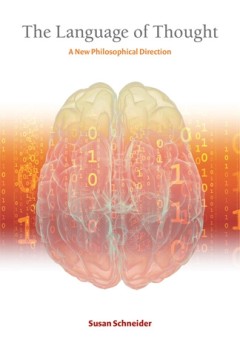
The Language of Thought: A New Philosophical Direction
This title presents a philosophical refashioning of the language of thought approach to the nature of the mind, and the related computational theory of mind.OCLC-licensed vendor bibliographic record.
- Edition
- -
- ISBN/ISSN
- 9780262295833
- Collation
- 1 online resource (xii, 259 pages) :illustrations
- Series Title
- -
- Call Number
- -
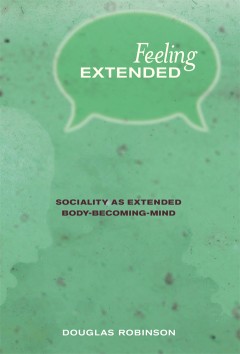
Feeling extended : sociality as extended body-becoming-mind
Within the Extended Mind Thesis (EMT) debate Robinson explores the world of affect and conation as intermediate realms of human being between the physical movements of 'body' and the qualitative movements of 'mind', and shows that affect is not only always in the process of becoming conation, but that affect is transcranial, and tends to become interpersonal conation. Affective-becoming-conativ…
- Edition
- -
- ISBN/ISSN
- 9781461939542
- Collation
- 1 online resource
- Series Title
- -
- Call Number
- -
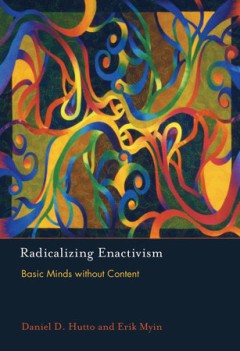
Radicalizing Enactivism: Basic Minds without Content
Hutto and Myin promote the cause of a radically enactive, embodied approach to cognition which holds that some kinds of minds - basic minds - are neither best explained by processes involving the manipulation of contents nor inherently contentful. It opposes the widely endorsed thesis that cognition always and everywhere involves content. The authors defend the counter-thesis that there can be …
- Edition
- -
- ISBN/ISSN
- 0262312174
- Collation
- 1 online resource
- Series Title
- -
- Call Number
- -
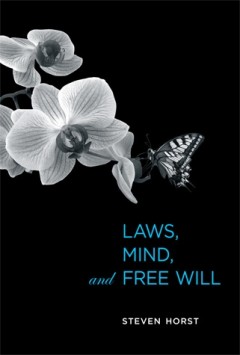
Laws, Mind, and Free Will
In this work, Steven Horst addresses the apparent dissonance between the picture of the natural world that arises from the sciences and our understanding of ourselves as agents who think and act.OCLC-licensed vendor bibliographic record.
- Edition
- -
- ISBN/ISSN
- 9780262295741
- Collation
- 1 online resource (xiii, 277 pages) :illustrations, map.
- Series Title
- -
- Call Number
- -
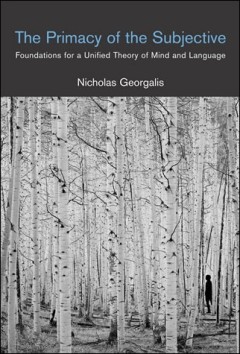
The primacy of the subjective :foundations for a unified theory of mind and l…
A proposal that the concept of minimal content--a narrow, first-person, non-phenomenal concept--plays a necessary, pivotal, foundational, and unifying role in the philosophy of mind and the philosophy of language.In this highly original monograph, Nicholas Georgalis proposes that the concept of minimal content is fundamental both to the philosophy of mind and to the philosophy of language. He a…
- Edition
- -
- ISBN/ISSN
- 9780262316279
- Collation
- 1 online resource (xvi, 352 pages)
- Series Title
- -
- Call Number
- -
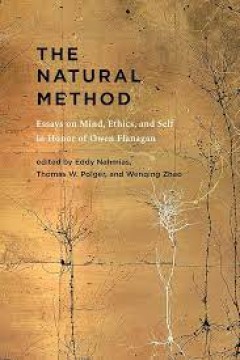
The natural methodessays on mind ethics and self in honor of Owen Flanagan
Description based upon print version of record.Includes index.OCLC-licensed vendor bibliographic record.
- Edition
- -
- ISBN/ISSN
- 9780262358507
- Collation
- 1 online resource (200 p.)
- Series Title
- -
- Call Number
- -
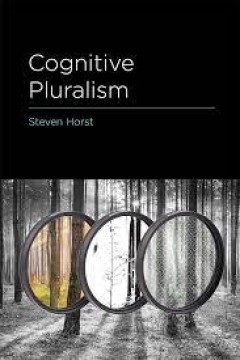
Cognitive pluralism
An argument that we understand the world through many special-purpose mental models of different content domains, and an exploration of the philosophical implications. Philosophers have traditionally assumed that the basic units of knowledge and understanding are concepts, beliefs, and argumentative inferences. In Cognitive Pluralism, Steven Horst proposes that another sort of unit--a mental mo…
- Edition
- -
- ISBN/ISSN
- 0262333627
- Collation
- 1 online resource (xii, 360 pages) :illustrations, maps
- Series Title
- -
- Call Number
- -
 Computer Science, Information & General Works
Computer Science, Information & General Works  Philosophy & Psychology
Philosophy & Psychology  Religion
Religion  Social Sciences
Social Sciences  Language
Language  Pure Science
Pure Science  Applied Sciences
Applied Sciences  Art & Recreation
Art & Recreation  Literature
Literature  History & Geography
History & Geography